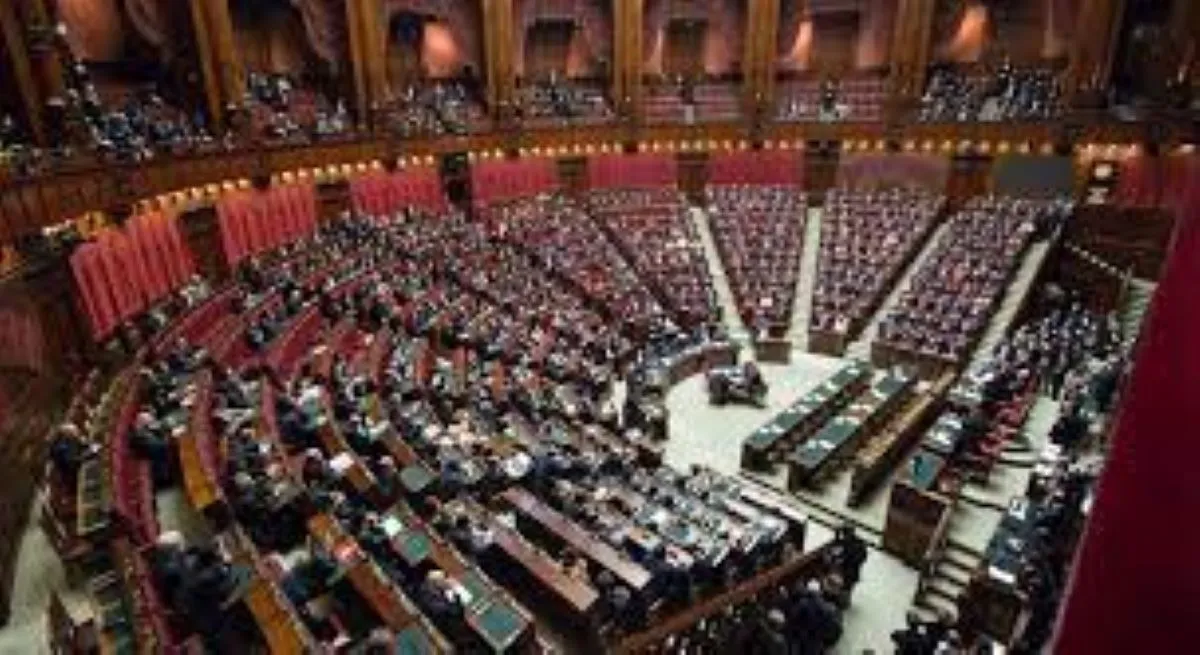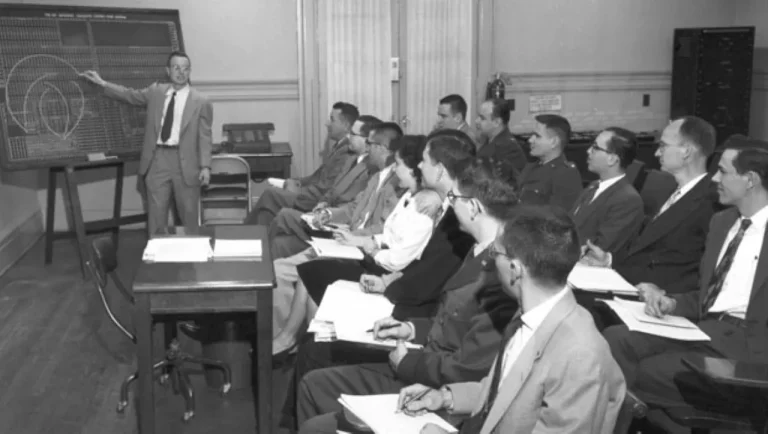Does Political Science Require Math?
While political science centers on governments, public policy, and civic engagement, does studying politics also involve crunching numbers? Let’s dig into the math behind this social science.
If you’re short on time, here’s a quick answer: Political science majors are not required to take high-level math courses. However, mathematical literacy strengthens analysis of polls, trends, and policy impacts.
In this approximately 3000 word article, we’ll look at typical math requirements for political science programs, examine where math skills are useful, and explore careers options even if you don’t love numbers.
Typical Math Requirements for Political Science Majors
Many students who are interested in pursuing a degree in political science often wonder if they will need to have a strong background in math. While political science is primarily a social science, it does require some level of mathematical proficiency.
However, the math requirements for political science majors are typically lower compared to other disciplines like engineering or mathematics.
Lower-Level Courses like Statistics
One of the main math requirements for political science majors is to take lower-level courses like statistics. Statistics is an essential tool in political science as it allows students to analyze data, make informed decisions, and draw conclusions based on empirical evidence.
Understanding statistical concepts such as probability, sampling, and hypothesis testing is crucial for conducting research in political science.
Students will often take introductory courses in statistics where they learn about descriptive statistics, inferential statistics, and basic statistical analysis techniques. These courses provide a foundation for more advanced research methods that students will encounter in their upper-level political science courses.
Limited Advanced Math Requirements
While statistics is a core math requirement for political science majors, the advanced math requirements are usually limited. Political science programs typically do not require students to take higher-level math courses such as calculus or advanced algebra.
Instead, the focus is primarily on developing critical thinking skills, understanding political theories, and analyzing complex social and political issues.
However, it is important to note that some subfields within political science, such as political economy or quantitative analysis, may require a higher level of mathematical proficiency. In these cases, students may need to take additional math courses or pursue a minor in mathematics or statistics to strengthen their quantitative skills.
Where Math Comes in Handy for Political Science
While political science is often associated with the study of government institutions, public policies, and international relations, it may come as a surprise that math plays a crucial role in this field as well.
Here are a few areas where a solid understanding of math can greatly benefit political scientists.
Understanding Polls and Survey Data
In today’s digital age, politicians heavily rely on polls and survey data to gauge public opinion and make strategic decisions. However, interpreting this data requires more than just a basic understanding of percentages.
Political scientists need to be equipped with statistical skills to properly analyze and draw meaningful conclusions from these datasets. By understanding concepts such as sampling methods, margin of error, and statistical significance, political scientists can provide accurate and reliable insights into public opinion trends.
Modeling Voting Trends
Mathematics is also instrumental in modeling voting trends. By using statistical models and algorithms, political scientists can analyze past voting patterns and predict future outcomes. These models take into account factors such as demographics, socio-economic status, and historical voting behavior to identify key trends and factors that influence elections.
This information can be invaluable for candidates and campaign strategists who want to understand their voter base and tailor their messages accordingly.
Analyzing Policy Impacts
When it comes to analyzing the impact of public policies, math plays a crucial role. By using statistical analysis, political scientists can evaluate the effectiveness of policies and determine their impact on various socio-economic indicators.
For example, they can assess the impact of tax reforms on income inequality or analyze the effects of welfare programs on poverty rates. These analyses provide policymakers with evidence-based insights that can inform future policy decisions.
It is important to note that while math is an important tool in political science, it is not the only one. Political scientists also rely on qualitative research methods, such as case studies and interviews, to gain a deeper understanding of the complexities of political phenomena.
However, a solid foundation in math equips political scientists with the quantitative skills necessary to analyze data, make predictions, and contribute to evidence-based policymaking.
For more information on the role of math in political science, you can visit this article published by Cambridge University Press.
Political Science Careers for Non-Math People
While math may be a daunting subject for some, it’s not necessarily a requirement for a successful career in political science. There are plenty of career paths within this field that don’t heavily rely on mathematical skills. Here are a few examples:
Political Analyst
A political analyst is responsible for studying and interpreting political trends, policies, and events. Their main focus is to provide insights and analysis on political developments. This role requires strong research and critical thinking skills, as well as the ability to effectively communicate complex ideas to a wide audience.
While some statistical analysis may be involved in this line of work, it is not the primary focus.
As a political analyst, you’ll spend your time researching political issues, analyzing data, and writing reports or articles. Your expertise will be sought after by media outlets, think tanks, and government agencies.
By staying up to date with current affairs and political trends, you can provide valuable insights that shape public discourse and policy decisions.
Policy Advisor
A policy advisor works closely with government officials, politicians, or organizations to develop and analyze policies. They provide expertise and recommendations on a wide range of topics, such as healthcare, education, or environmental regulations.
While understanding the broader implications of policies is essential, advanced mathematical skills are not typically required for this role.
As a policy advisor, you’ll be responsible for conducting research, gathering data, and assessing the impact of proposed policies. Your ability to think critically, communicate effectively, and understand the political landscape will be crucial in shaping policy decisions.
By working closely with decision-makers, you have the opportunity to influence and shape public policy for the better.
Legislative Aide
A legislative aide is a valuable member of a politician’s team, assisting with research, drafting legislation, and providing support in the legislative process. While attention to detail and analytical skills are important, advanced mathematical knowledge is not typically a requirement for this role.
As a legislative aide, you’ll work closely with politicians to help shape and implement their legislative agenda. Your responsibilities may include conducting research on specific policy issues, drafting speeches or position papers, and providing advice on potential policy implications.
By being involved in the legislative process, you’ll gain firsthand experience in politics and have the opportunity to make a difference in your community.
While these are just a few examples, there are many other career paths within political science that don’t heavily rely on mathematical skills. It’s important to find a career that aligns with your interests and strengths.
Remember, success in political science often requires a combination of critical thinking, research skills, and effective communication – qualities that can be honed regardless of your mathematical prowess.
Building Applicable Math Skills
When it comes to the field of political science, math skills are often underestimated. However, having a strong foundation in math can be incredibly beneficial in this discipline. It not only enhances critical thinking and problem-solving abilities but also allows political scientists to analyze and interpret data accurately.
Let’s explore some key areas where math skills can greatly contribute to the study of political science.
Introductory Statistics
Statistics play a crucial role in political science research. Understanding basic statistical concepts and techniques is essential for analyzing and interpreting data. By learning introductory statistics, political scientists can make informed decisions based on empirical evidence.
They can use statistical methods to measure the impact of policies, predict voting patterns, and gauge public opinion. Knowing how to use statistical software, such as SPSS or R, allows researchers to analyze large datasets efficiently and draw meaningful conclusions.
Research Methods
Research methods in political science often involve collecting and analyzing data. A solid understanding of math helps political scientists design research studies, formulate hypotheses, and select appropriate data collection methods.
For example, quantitative research often involves surveys and experiments that require mathematical calculations to analyze the data accurately. Without math skills, political scientists may struggle to accurately interpret research findings and draw valid conclusions.
Data Literacy
In the era of big data, being literate in data is crucial for political scientists. This involves the ability to access, evaluate, and interpret data from various sources. Math skills enable researchers to clean and preprocess data effectively, ensuring its accuracy and reliability.
Furthermore, understanding mathematical concepts such as probability and correlation allows political scientists to analyze complex datasets and identify patterns and trends. Data literacy is becoming increasingly important in the field, as it enables researchers to make evidence-based arguments and predictions.
Looking for additional resources to build your math skills for political science? Check out PoliticalScienceReady.com for a comprehensive guide on how to apply math in political science research.
Making Math Work for You in Political Science
While some students may groan at the thought of tackling math in their political science studies, the truth is that having a solid foundation in math can greatly benefit those pursuing a career in this field.
From understanding and analyzing data to conducting research and making informed decisions, math skills are essential. Here are a few tips on how to make math work for you in political science.
Take Required Courses Seriously
When it comes to math courses, it’s important not to underestimate their significance in political science. Many political science programs require students to take courses such as statistics or quantitative analysis.
These courses provide valuable skills in data interpretation, hypothesis testing, and the ability to draw meaningful conclusions from empirical evidence. By taking these courses seriously and dedicating time to mastering the material, students can enhance their analytical abilities and become more proficient in their understanding of political science concepts.
Connect Math to Real Issues
One way to make math more engaging and relevant in political science is to connect it to real-world issues. For example, statistical analysis can be used to study voting patterns, analyze survey data on public opinion, or examine the impact of policy decisions on different demographic groups.
By applying mathematical principles to concrete political problems, students can see the practical applications of math in their field of study. This can help foster a deeper understanding of the subject and make it more enjoyable to learn.
Leverage Campus Math Tutoring
If math has always been a challenge for you, don’t be discouraged. Many universities offer free tutoring services specifically for math courses. Taking advantage of these resources can make a significant difference in your understanding and performance in math-related subjects.
Tutors can provide personalized guidance, explain difficult concepts, and help you develop effective study strategies. Don’t hesitate to seek assistance when needed – the extra support can help you excel in your political science studies.
Remember, math is a valuable tool in political science. Embracing it rather than shying away from it can open doors to new opportunities and enhance your skills as a political science professional. By taking math courses seriously, connecting math to real issues, and utilizing campus tutoring services, you can make math work for you in your political science journey.
Conclusion
While political science programs emphasize history, theory, and writing skills, basic math literacy strengthens data analysis abilities. By taking required intro stats courses and consciously applying math concepts to research and policy issues, non-math scholars can excel in civic-focused careers.
With a well-rounded skillset and passion for political process and social justice, limited mathematical experience need not limit your positive public impact.







